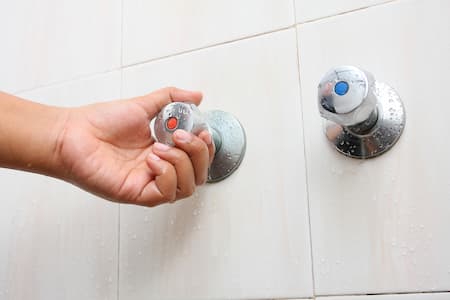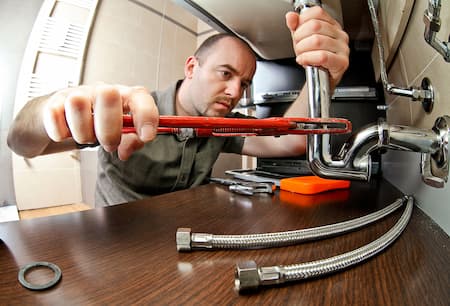What To Do About A Leaking Water Heater?
Introduction
Ah, the joys of homeownership! There’s nothing quite like the comfort of a warm shower or the convenience of hot water on demand. But what happens when this comforting luxury turns into a nightmare? You guessed it—a leaky water heater can send your peace of mind right down the drain (literally!). In this comprehensive guide, we’ll dive deep into the murky waters of leaky situations and outline essential steps to take when your water heater is leaking. So grab a cup of coffee, settle in, and let's get started!
Leaky Situations: Essential Steps to Take When Your Water Heater is Leaking
When you first notice that dreaded puddle forming around your water heater, your mind might race Additional resources with questions: “What do I do?” “Is it serious?” “Can I fix it myself?” These are all valid concerns, and trust me; you’re not alone in facing this issue.
Understanding Your Water Heater
Before we jump into action steps, let’s take a moment to understand the beast we're dealing with—a water heater.
Types of Water Heaters
- Pros: Instant hot water, energy-efficient.
- Cons: Higher initial cost.
- Pros: Lower upfront costs, easy installation.
- Cons: Limited hot water supply.
- Pros: Energy-efficient.
- Cons: Higher installation costs.
- Pros: Environmentally friendly.
- Cons: Weather-dependent efficiency.
Common Causes of Leaks
- Corrosion: Over time, minerals in water can corrode pipes and tanks.
- Temperature Pressure Relief Valve Failure: This valve helps release excess pressure but can fail and leak.
- Drain Valve Issues: A loose or damaged drain valve can cause leaks.
- Loose Connections: Sometimes fittings or connections just need tightening.
Step 1: Identify the Source of the Leak
Visual Inspection
First off, roll up those sleeves and get ready for some detective work! Check for:
- Cracks or bulges in the tank
- Puddles at the base
- Damp spots on walls or ceiling
Using a Moisture Meter
If you want to get high-tech about it, consider using a moisture meter. It’ll help pinpoint areas that are retaining unexpected moisture.
Step 2: Turn Off Power Supply & Water Supply
Electric vs Gas Water Heaters
For electric heaters:
- Locate your circuit breaker panel and turn off the power supply.
For gas heaters:
- Turn off the gas valve usually located near the heater.
Shutting Off Water Supply
Locate your main shut-off valve—this often looks like a round wheel on your main plumbing line—and turn it clockwise until it stops.
Step 3: Drain Your Water Heater
Why drain? Because standing water can lead to more problems down the line!
How to Drain a Tank-Type Water Heater
Tip: Always be careful; hot water can scald!
Step 4: Assess Damage and Repair Options
Once drained, it's time to assess any damage.
Minor Repairs You Can Do Yourself
- Tighten loose fittings with a wrench.
- Replace faulty valves if you're comfortable doing so (just make sure you follow manufacturer guidelines).
When to Call in Professionals?
If there’s significant corrosion or structural damage, don’t hesitate—call an expert for help! It might save you from future headaches down the road.
Step 5: Prevent Future Leaks with Regular Maintenance
Just like changing oil in your car keeps it running smoothly, regular maintenance will keep that water heater humming along nicely!
Annual Inspections
Check for signs of wear and tear each year. Look for rust spots and perform pressure tests on valves.
Flushing Your Tank Regularly
Sediment buildup can lead to leaks over time; flush that tank out at least once a year!
FAQs About Leaky Situations: Essential Steps to Take When Your Water Heater is Leaking
What should I do if my water heater starts leaking?
First things first—turn off both power and water supply before assessing damage!
How much does it cost to repair a leaking water heater?
Costs vary widely based on location and type of repair needed—from $100 for minor fixes up to several hundred dollars for major repairs.
Can I install my own water heater?

Is it normal for my water heater to sweat?
Yes! Condensation occurs during humid conditions but watch out for excessive moisture as that could indicate other issues.
How long does a typical water heater last?
Most last between 8–12 years depending on usage and maintenance practices!

Should I replace my old unit or just repair it?
If repairs approach half the cost of replacement—or if your unit is nearing its lifespan—it may be more economical to invest in a new unit!
Conclusion
Dealing with leaky situations can feel overwhelming but fear not! With this guide under your belt, you're better equipped than ever to tackle those pesky leaks head-on! Remember that preventative maintenance goes a long way in ensuring your hot-water haven stays intact for years to come.
So next time you find yourself knee-deep in puddles around your beloved appliance, don’t panic! Follow these essential steps when your water heater is leaking; you'll handle it like a pro before you know it!
And who knows? Maybe after all this knowledge soaking in (pun intended!), you'll even consider yourself somewhat of an expert on "Leaky Situations: Essential Steps to Take When Your Water Heater is Leaking."
Happy fixing!